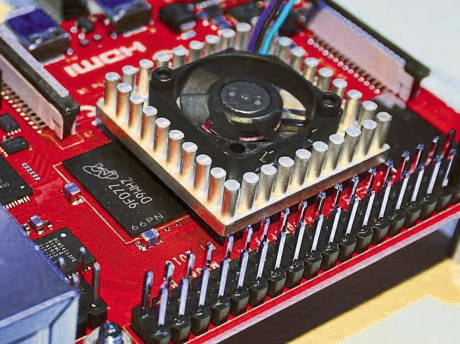
SEPA Europe has developed an active chip cooling and tested it on a Raspberry Pi 4. Compared to operation with a heat sink or completely without cooling, the temperature decreased by 25 K.
Smaller, more compact and ever more powerful – these have been the trends in the development of embedded systems for years. However, a high computing power always goes hand in hand with high heat generation.
Anyone who wants to ensure the functionality and longevity of the entire system must therefore ensure efficient heat dissipation.
While the use of fans is a matter of course for cooling control cabinets or industrial computers, and standard components can largely be used, active cooling for small devices is usually much more complex.
This is because numerous design, technical and visual requirements have to be taken into account. In addition, the main problem with small devices is usually not the dissipation of the heat generated by all components, but the cooling of the hotspot.